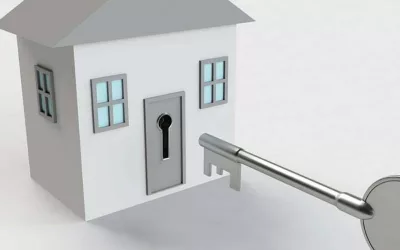Purchasing a home is a significant milestone in many people’s lives. However, one of the most common challenges is saving enough money for a mortgage down payment. While it may seem daunting, with careful planning and a few smart strategies, you can make your dream of homeownership a reality. In this article, we’ll explore the top five ways to save for a mortgage down payment, empowering you to take that crucial step towards owning your own home.
Establish a Budget:
The first step towards saving for a mortgage down payment is to create a realistic budget. Evaluate your income, expenses, and financial goals to determine how much you can allocate towards savings each month. Track your spending habits and identify areas where you can cut back or make adjustments. By following a budget, you’ll have a clear picture of your financial situation and be able to set aside a specific amount for your down payment savings.
Automate Savings:
Saving money can be challenging, especially if it requires manual effort each month. Instead, automate your savings. Set up an automatic transfer from your checking account to a separate savings account dedicated to your down payment. This way, a predetermined amount will be deposited into your savings each month without any conscious effort. Automating your savings not only simplifies the process but also makes it easier to stay disciplined and consistent.
Reduce Expenses and Increase Income:
To accelerate your savings, consider reducing unnecessary expenses. Evaluate your monthly bills and subscriptions, and eliminate or downgrade services you can live without. Additionally, look for ways to cut back on discretionary spending, such as dining out or entertainment. Each saved dollar can contribute to your down payment fund. Simultaneously, explore ways to boost your income, such as taking on a side gig or freelancing in your spare time. The combination of reducing expenses and increasing income can significantly accelerate your savings progress.
Explore Down Payment Assistance Programs:
Many governments, organizations, and financial institutions offer down payment assistance programs that can provide a valuable boost towards your savings goal. Research and inquire about these programs in your area. Some programs offer grants, loans, or tax credits specifically designed to assist first-time homebuyers. Taking advantage of these resources can help bridge the gap between your savings and the required down payment, making homeownership more accessible.
Prioritize Long-Term Savings:
While saving for a down payment, it’s essential not to neglect other long-term savings goals, such as retirement or emergency funds. Allocate a portion of your savings towards these goals to ensure financial stability and security in the future. Although diverting some savings from your down payment fund might slow down the process slightly, it’s crucial to maintain a holistic approach to your overall financial well-being.
Conclusion:
Saving for a mortgage down payment requires discipline, commitment, and a well-defined strategy. By following the top five ways outlined in this article, you’ll be well on your way to accumulating the funds needed to make your homeownership dreams a reality. Remember to establish a budget, automate your savings, reduce expenses, explore assistance programs, and prioritize long-term savings. With consistent effort and a clear plan, you’ll be prepared to take that exciting step into homeownership and enjoy the rewards of owning your own home.
What are the top 5 tips for having a smooth mortgage process?
Obtaining a mortgage can often feel like navigating treacherous waters. The process may seem overwhelming with the myriad of paperwork, financial details, and lender requirements. However, armed with the right knowledge and strategies, you can confidently and easily...
How to determine my home buying budget?
Purchasing a new home is an exciting and significant milestone in anyone's life. However, before you start picturing yourself in your dream home, it is crucial to determine your home buying budget. Your budget determines not only the price range of homes you should...
What are the benefits of a VA loan?
If you're a military veteran or active-duty service member, a VA loan can be an excellent option for financing your home. VA loans are backed by the Department of Veterans Affairs (VA), and they offer a range of benefits that can make them a great choice for eligible...




